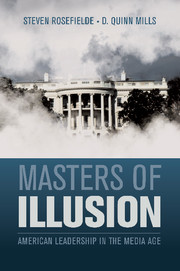Book contents
- Frontmatter
- Contents
- List of Tables and Figures
- Preface
- Acronyms
- Executive Summary
- Acknowledgments
- PART I NATIONAL SECURITY IN THE NEW AGE
- PART II AMERICAN PUBLIC CULTURE AND THE WORLD
- PART III AMERICAN PUBLIC CULTURE AND OURSELVES
- PART IV THE RECONFIGURATION OF NATIONAL WEALTH AND POWER
- 8 The Economic Roots of American Power
- 9 Economic Disparities among Nations
- 10 Geopolitical Aspirations of the Nations
- PART V VORTEXES OF DANGER
- PART VI THE AMERICAN RESPONSE
- PART VII LEADING TOWARD PEACE
- PART VIII AMERICAN PRESIDENTIAL LEADERSHIP
- Notes
- Glossary
- Bibliography
- Index
10 - Geopolitical Aspirations of the Nations
Published online by Cambridge University Press: 31 July 2009
- Frontmatter
- Contents
- List of Tables and Figures
- Preface
- Acronyms
- Executive Summary
- Acknowledgments
- PART I NATIONAL SECURITY IN THE NEW AGE
- PART II AMERICAN PUBLIC CULTURE AND THE WORLD
- PART III AMERICAN PUBLIC CULTURE AND OURSELVES
- PART IV THE RECONFIGURATION OF NATIONAL WEALTH AND POWER
- 8 The Economic Roots of American Power
- 9 Economic Disparities among Nations
- 10 Geopolitical Aspirations of the Nations
- PART V VORTEXES OF DANGER
- PART VI THE AMERICAN RESPONSE
- PART VII LEADING TOWARD PEACE
- PART VIII AMERICAN PRESIDENTIAL LEADERSHIP
- Notes
- Glossary
- Bibliography
- Index
Summary
We watch today the military buildups of the great powers and wonder: What are the aspirations which the buildups are intended to further? National leaders explain them as necessary to their defense, but neither Russia nor China is directly threatened (though the declared geopolitical interests of both, particularly the Russians are being steadily infringed by the western powers and China).
NATIONALIST FERVOR IN CHINA
China's economy is improving rapidly and it is more and more our trade partner. But it is also highly nationalistic and is arming steadily. China need not be our enemy, but it is not entirely in our power to avoid a conflict should Chinese intentions or the flow of events so determine. China already can target our West Coast cities with nuclear missiles, and is modernizing and enlarging its strategic missile capability so that in a few years Chinese missiles will be able to hit all of our country. Then the military situation between America and China will be very different than it is today, and to our detriment.
CHINESE–AMERICAN RIVALRY
“Now, it could happen that China becomes our enemy,” Henry Kissinger told a reporter. “But it is not foreordained. And it should not happen as a result of our actions.” This seemingly innocuous principle is in fact potentially misleading, because it implies that we may have the ability to avoid a conflict with China if only we act in a friendly matter toward it.
- Type
- Chapter
- Information
- Masters of IllusionAmerican Leadership in the Media Age, pp. 185 - 232Publisher: Cambridge University PressPrint publication year: 2006

